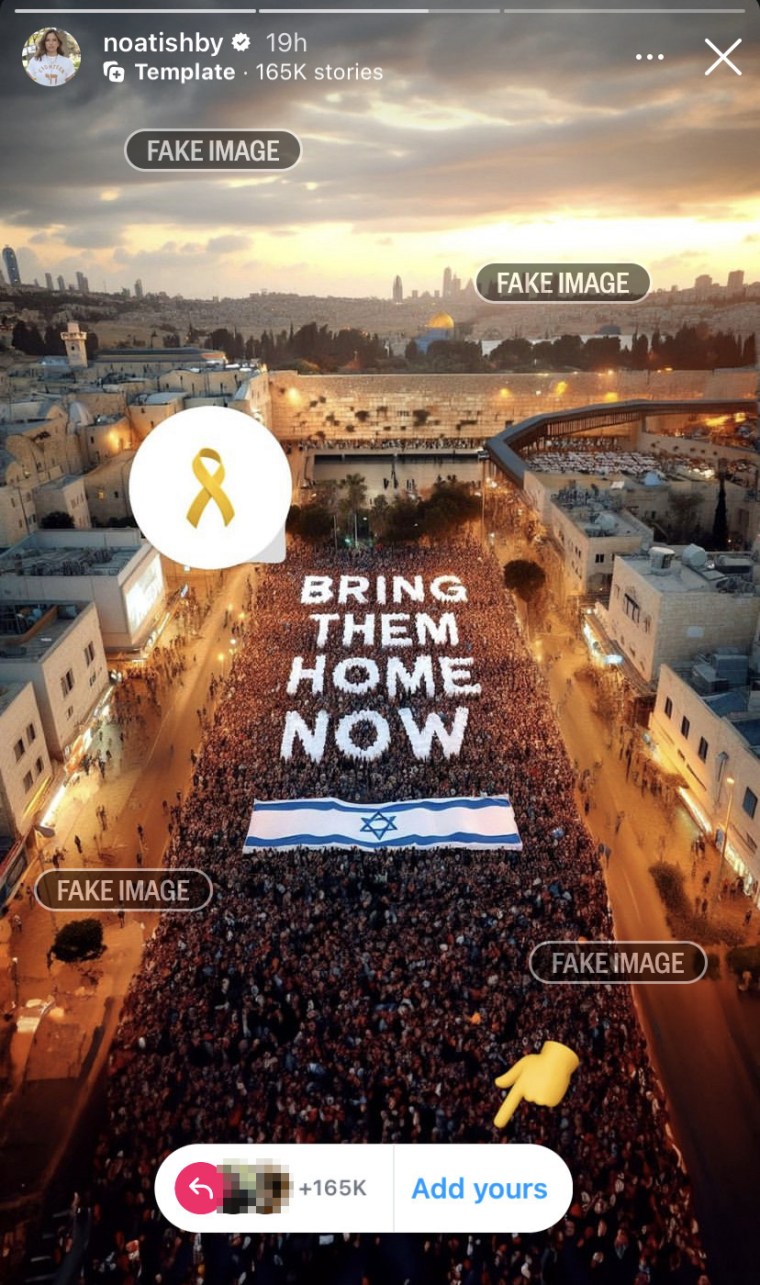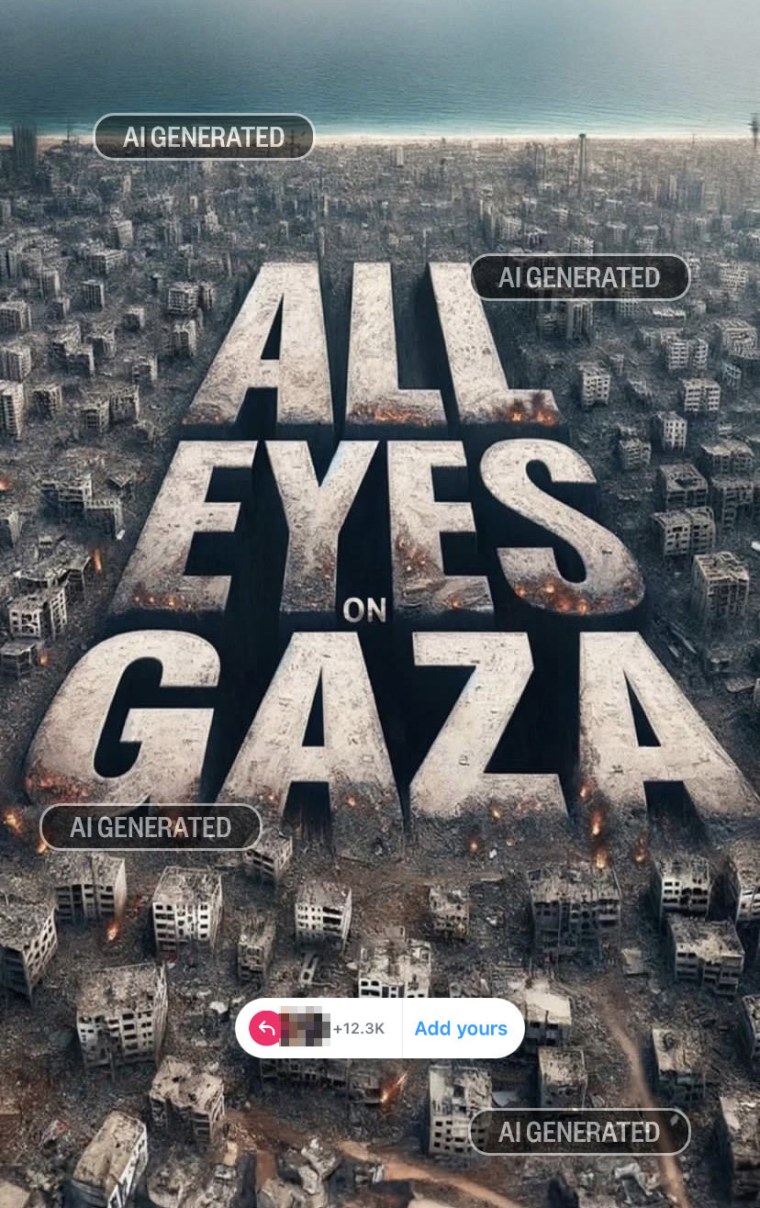Dozens of them Pictures associated to the conflict within the Gaza Strip, which seem to have been created with the assistance of synthetic intelligence, have unfold throughout Instagram in current days following the viral success of a submit calling for ‘All Eyes on Rafah’, which has now been adopted by greater than 47 million folks have shared it. time.
The photographs, a mixture of pro-Israel and pro-Palestinian posts, embody imitations of the unique Rafah submit and extra graphic pictures, together with a bloodied Israeli Prime Minister Benjamin Netanyahu and an Israeli baby confronted by a Hamas fighter. An apparently AI-generated picture reveals a big crowd gathered in a metropolis sq. with large block letters studying “deliver them dwelling now,” a reference to the 125 Israeli hostages held captive in Gaza. It has been shared greater than 134,000 instances on Instagram.

The sudden and fast unfold of the photographs comes as worldwide consideration is as soon as once more targeted on Israel’s assault on Rafah following an Israeli airstrike that native officers stated killed at the very least 45 civilians on Sunday.
The unfold of the photographs provides to the continued battle for consideration on social media between voices supporting Israel and its marketing campaign in Gaza, and voices supporting the Palestinians. And whereas AI imagery has develop into more and more widespread on the web, its use on Instagram – a platform that generally eschews information however stays an important outlet for Palestinian journalists – underlines how the know-how is already starting to affect political expression on-line.
Shortly after the ‘All Eyes on Rafah’ picture began going viral, pro-Israel pictures started circulating. The photographs bear lots of the hallmarks of AI-created content material, together with repetitive or blurry visible components. Some accounts and individuals who posted the photographs have been express about their use of AI to create them.
The photographs pose a problem for Meta, particularly with regards to the way it can implement its insurance policies towards AI-generated content material and depictions of violence.
On Wednesday, a number of Israeli media retailers reported {that a} pro-Israel Instagram template responding to the “Rafah” picture had been faraway from Instagram by the platform. The AI-generated picture confirmed a Hamas gunman standing over a child in a pool of blood and a burning Israeli flag with the textual content: “The place have been your eyes on October 7?”

Israel’s official Instagram account printed a number of feedback concerning the picture’s elimination, complaining in a now-deleted submit: “Instagram determined to take away the template, intentionally silencing folks from sharing what occurred on October 7.”
The Occasions of Israel reported that the unique submit had been restored. Meta stated the picture doesn’t violate the phrases of use and was unintentionally eliminated.
Lots of the pictures have been uploaded to Instagram’s “template” function, which permits customers to rapidly share posts to their very own accounts.
Some viral templates present graphics that seem like created by AI, together with one picture that falsely depicts Netanyahu in several contexts, together with with blood on his fingers and physique. One picture, shared 5 million instances on Instagram, depicted Netanyahu in a waist-deep pool of blood, with accompanying textual content studying “terrorist child killer!”
Meta has stated it hopes to not amplify political content material forward of the 2024 presidential election, however the unfold of such pictures suggests the platform might wrestle to realize that objective within the age of AI.
Regardless of a brand new initiative by Meta to extra strictly label AI-generated content material on its platforms, not one of the templates seen by NBC Information included clarifications that the photographs have been created with AI.
Following the virality of the unique ‘Rafah’ picture, many pro-Palestinian activists criticized the usage of AI in sharing their message, arguing that it could sanitize the true horrors of the conflict.



